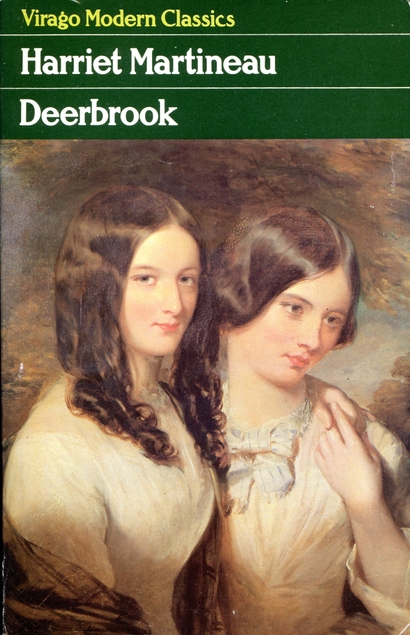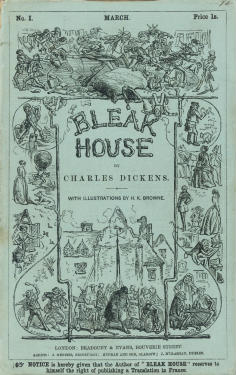To which I answer, what free time? I'm still writing blogs, writing stories, keeping up with friends, paperwork for Alternatives to Violence Project Sioux Falls, writing (with the permission of prison authorities) to the inmates, keeping up with the latest COVID-19 statistics, a daily walk, and then there's laundry, constant reading, making face masks and other survival kit, and the weekly foray to find food and other necessities. I suppose I could also clean the house a little bit, but let's not go too far. It might break into my reading. And at night - a girl's gotta have some fun - there's Netflix!
Meanwhile, let's talk about our reading habits in time of worldwide pandemic.
 Some people are reading Albert Camus' The Plague, and I tried, I really tried, to re-read it, but it was just too damned depressing. On the other hand, Daniel Defoe's A Journal of the Plague Year, is a real nail-biter, but also has a lot of mordant humor to it. (Which is only what you would expect from the author of Moll Flanders and Robinson Crusoe.) The descriptions of "doctors" and treatment alone is enough to make every Monty Python movie look underdone and insipid.
Some people are reading Albert Camus' The Plague, and I tried, I really tried, to re-read it, but it was just too damned depressing. On the other hand, Daniel Defoe's A Journal of the Plague Year, is a real nail-biter, but also has a lot of mordant humor to it. (Which is only what you would expect from the author of Moll Flanders and Robinson Crusoe.) The descriptions of "doctors" and treatment alone is enough to make every Monty Python movie look underdone and insipid.BTW, every day for the last two months I've included the daily COVID-19 statistics in my journal, because (1) I'm an historian and (2) I read Defoe's Journal years ago, and one of the things that always stood out to me were the "daily bills of mortality". I believe in maintaining the tradition. In the immortal words of Mr. Defoe, "The bills were simply frightful."Meanwhile, if you really want good literature about epidemics, you can't go wrong with the Victorians. They knew how to write a cracking good yarn, and wallowed in sickbed and deathbed scenes, and all the accompanying pathos and tears, as well as tender moments of love-making on the precipice. Plus they're long novels. Like a mini-series, you can binge for quite a while.
Charles Dickens, Bleak House. - Smallpox. Besides being the most bitter satire of the legal system, bureaucracy, and greed that's ever been written, some of the major plot twists depend on a smallpox epidemic. While I - like many others - find our heroine Esther Summerson almost nauseatingly sweet and self-deprecating (it doesn't help that she narrates much of it), there are enough other characters to make this a great novel. One of them, Harold Skimpole (supposedly based on the real life poet Leigh Hunt), who is a masterpiece: free of all the duties and accountabilities of life.
"I covet nothing," said Mr. Skimpole in the same light way. "Possession is nothing to me. Here is my friend Jarndyce's excellent house. I feel obliged to him for possessing it. I can sketch it and alter it. I can set it to music. When I am here, I have sufficient possession of it and have neither trouble, cost, nor responsibility... It's only you, the generous creatures, whom I envy. I envy you your power of doing what you do. It is what I should revel in myself. I don't feel any vulgar gratitude to you. I almost feel as if YOU ought to be grateful to ME for giving you the opportunity of enjoying the luxury of generosity. I know you like it. For anything I can tell, I may have come into the world expressly for the purpose of increasing your stock of happiness. I may have been born to be a benefactor to you by sometimes giving you an opportunity of assisting me in my little perplexities. Why should I regret my incapacity for details and worldly affairs when it leads to such pleasant consequences? I don't regret it therefore."Who among us has not met a Mr. Skimpole? And what a hard lesson it is when the Mr. Skimpole does to us or someone we love what he does to Richard Carstairs - bleeding him dry of every penny - and to the poor boy Jo, dying of smallpox: "You had better turn him out." And when Mr. Jarndyce will not turn him out, but nurse him, Skimpole - we find out later - takes a bribe and turns Jo over to the man sent to find and kill the boy. And no one kills Skimpole! Bleak House is worth the reading just for the portrait of Skimpole, the ultimate conman.
Charlotte Yonge, The Trial. - Scarlet fever (an outgrowth of strep throat) combined with typhus (lice) spreads through the village in the opening chapters, killing tons of people. In the aftermath, one of the local doctors' families has lost the parents, leaving the oldest son (also a physician) in charge of his 4 siblings. Unfortunately, Henry Ward is of the pompous ass school of Victorian pater familias, and the conflict between him and his younger brother explodes into violence. Leonard takes off and goes to work for an old reprobate who's a distant relative. Old reprobate is killed. Leonard's arrested and tried, and Henry takes his sisters and leaves for America, where they move to a swampy, disease-filled settlement (that should be named Eden after Martin Chuzzlewit). What could possibly go wrong? Especially after Henry leaves his sisters in the settlement to go be a doctor in the Civil War? Who will rescue them? What will happen to Leonard? What does Sir Walter Scott's Marmion have to do with anything? (BTW - this novel is a sequence to her The Daisy Chain, both of them favorites of C. S. Lewis.)
 Harriet Martineau, Deerbrook. - Among the earliest Victorian novels (1839), the real plot is about Dr. Hope, who marries one sister while being in [unrequited] love with the other, and how that works out. About mid-way through the novel, either cholera or typhoid ravage through a town, causing mass deaths and change. This was the only novel Martineau ever wrote - she was famous for her political economic theories, which she put forward in a series of surprisingly well-written Illustrations on Political Economy. Deerbrook doesn't have much on political economy: but it does have a lot of authorial musings about hopeless love, what women should do with their lives, and poverty. Plus a truly evil neighbor who will do anything - ANYTHING - to prevent her brother from marrying the object of Dr. Hope's true love.
Harriet Martineau, Deerbrook. - Among the earliest Victorian novels (1839), the real plot is about Dr. Hope, who marries one sister while being in [unrequited] love with the other, and how that works out. About mid-way through the novel, either cholera or typhoid ravage through a town, causing mass deaths and change. This was the only novel Martineau ever wrote - she was famous for her political economic theories, which she put forward in a series of surprisingly well-written Illustrations on Political Economy. Deerbrook doesn't have much on political economy: but it does have a lot of authorial musings about hopeless love, what women should do with their lives, and poverty. Plus a truly evil neighbor who will do anything - ANYTHING - to prevent her brother from marrying the object of Dr. Hope's true love.Elizabeth Gaskell, Ruth. - Ruth is a fallen woman, but pure of heart, who redeems herself by nursing her seducer during a typhus epidemic.
But, if you're tired of morality and uplifting thoughts, or even thoughts about death at all, why not go further back and dig out a copy of Boccaccio's Decameron Tales? Ten young people (7 women, 3 men) flee plague-stricken Florence and go out in the countryside (yes, they're young; yes, they have money; yes, they have servants; think all the New Yorkers who fled to the Hamptons), where every day they eat and drink and sit out in the garden, each one telling a tale.

They are almost all tales of love, trade (they're from Florence, and they're all merchants' children) many bawdy, most surprisingly (?) anti-clerical (in a time when there was no alternative to The Church), some tragic, most witty, and very, very, very entertaining. Most are very old, retold by Boccaccio for his modern audience (everything was modern once upon a time). And - if you're ever short of a plot, you could do worse than browse through The Decameron. (Or Marguerite de Navarre's Heptameron, which often skewered her contemporaries...)
And let's not forget Chaucer, who lifted a number of his Canterbury Tales from The Decameron, so why not read that, too? Read about Chanticleer and Pertelote (The Nun's Priest's Tale), The Wife of Bath's Tale ("Alas that ever love was sin!"), the Cook - too drunk to tell his tale; the Knight's Tale (a classic tale of chivalrous love), and the battling Reeve and Miller (whose tales show a miller and a reeve, respectively, being bamboozled and cuckolded). And on and on and on:
- The Miller's TaleThus swyved was the carpenteres wyf,
For al his keping and his Ialousye;
And Absolon hath kist hir nether yë;
And Nicholas is scalded in the toute.
This tale is doon, and god save al the route!
All of these and more are available for free at Gutenberg! (http://www.gutenberg.org/wiki/Main_Page).
And most are available for darn near free on Kindle and Nook.

Lots of good suggestions!
ReplyDeleteYears ago Masterpiece Theater did a really good adaptation of Bleak House with a wonderful Skimpole played by the same actor who does Inspector Linley ( and always seems a bit stiff in the role to me).
Janice, I remember that one, and he was VERY good at Skimpole. It's such an evil character, wrapped up in smiles and airiness.
ReplyDeleteThe Decameron was a favorite of my father, but I liked the Wyf of Bath, a very naughty girl.
ReplyDeleteA sly and sensible list, Eve. Great job.
"Jenny kissed me when we met,
ReplyDeleteJumping from the chair she sat in;
Time, you thief who love to get
Sweets into your list, put that in.
Say I'm weary, say I'm sad.
Say that health and wealth
Have missed me;
Say I'm growing old, but add,
Jenny kissed me."
-Leigh Hunt
So not only a writer of trivial doggerel, but an evil, parasitic one, too?
Thanks, Leigh.
ReplyDeleteBrian - apparently so. From Wikipedia: In a letter of 25 September 1853, Dickens stated that Hunt had inspired the character of Harold Skimpole in Bleak House; "I suppose he is the most exact portrait that was ever painted in words! ... It is an absolute reproduction of a real man". A contemporary critic commented, "I recognized Skimpole instantaneously; ... and so did every person whom I talked with about it who had ever had Leigh Hunt's acquaintance."[16] G. K. Chesterton suggested that Dickens "May never once have had the unfriendly thought, 'Suppose Hunt behaved like a rascal!'; he may have only had the fanciful thought, 'Suppose a rascal behaved like Hunt!'" (Chesterton 1906).